
The World Health Organization (WHO), following the recommendation of an emergency panel on human monkeypox, has decided to no longer consider the disease a global health emergency, the organization’s director general, Tedros Adhanom Gebreyesus, said Thursday.
“I am pleased to announce that monkeypox is no longer a global public health emergency,” Gebreyesus said during a briefing.
He said a WHO emergency commission met Wednesday and concluded that the outbreak was no longer a threat of international concern and recommended that it be removed from that status. Gebreyesus followed that advice.
However, he noted that, as with the COVID-19 coronavirus, this does not mean that the work to control the disease is over. Monkeypox, according to the WHO chief, is still a serious public health problem.
Earlier in May, Gebreyesus said the WHO no longer views COVID-19 coronavirus as a particular threat to global health.
Monkeypox is a rare infectious disease most common in remote areas of Central and West Africa. Its symptoms include nausea, fever, rash, itching, and muscle pain.
The Club of Experts previously analyzed the likelihood of monkeypox becoming an epidemic. Read more at the link:
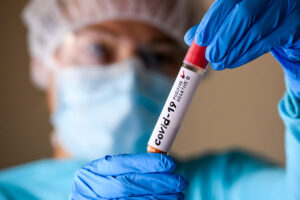
The World Health Organization (WHO) has now classified the COVID-19 coronavirus as an entrenched health problem and intends to provide updated recommendations for combating it, the organization said in a press release.
“Director General Tedros Adhanom Gebreyesus has ruled that COVID-19 is now an entrenched and persistent public health problem. It is no longer a public health emergency of international significance,” the document states.
“It will convene the International Health Regulations Review Committee to advise on standing recommendations for a long-term response to COVID-19,” WHO said.
Gebreyesus will consult in light of WHO’s 2023-2025 plans for responding to COVID-19. These include measures for countries around the world to jointly monitor the spread of the coronavirus and protect populations from infection. WHO advises countries to adhere to this plan during the transition to updated coronavirus control methods.
The list of temporary recommendations includes preparing for future COVID-19 outbreaks, introducing coronavirus vaccination into lifelong immunization programs, gathering information from various surveillance data sources for a complete picture of the spread of the disease, ensuring access to treatment for COVID-19 and diagnostics for the disease. In addition, WHO advises continuing to lift travel restrictions and not requiring any evidence of vaccination.
At the same time, the WHO said, “member countries are currently negotiating an agreement on pandemic prevention, preparedness and control.” In particular, they are talking about amendments to the International Health Regulations. For example, Dr. Michael Ryan, director of the WHO Health Emergencies Program, commenting on the negotiations, said that there should never be a repeat of cases where patients could not even get to the emergency room.
Earlier Friday, Gebreyesus announced that the WHO no longer views the COVID-19 coronavirus as a global health threat. However, he clarified that this does not mean that the threat of the coronavirus is completely gone.
He added that during the three years of the pandemic, experts have recorded nearly 7 million deaths due to infection with the coronavirus.
“But we know that the number of deaths is actually several times higher – at least 20 million,” the WHO chief stressed.
According to the Worldometers statistics website, more than 687 million people worldwide were infected with the coronavirus during the pandemic, with more than 660 million COVID-19 cures recorded. The first place in the number of infections is occupied by the U.S. with more than 106.7 million, the second is India, where almost 45 million cases of infection with COVID-19 were identified, and the third is France with about 40 million cases.
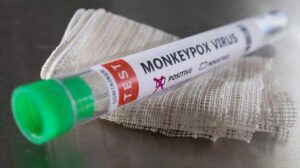
The WHO Regional Office for Europe and the European Commission (EC) have confirmed their joint efforts to prevent monkeypox, which threatens to become endemic in Europe, according to a communiqué published in Brussels on Tuesday.
“We are witnessing an unprecedented spread of monkeypox orthopoxvirus in our region and around the world,” said Hans Kluge, Director of the WHO European Office, and Stella Kyriakidis, EC Health Member, in a joint statement on the occasion of the 72nd session of the WHO Regional Committee for Europe.
“This zoonotic virus, previously associated with only limited human-to-human spread in non-endemic countries, is now a global cross-border public health threat in Europe and an international public health emergency,” the document emphasizes.
The statement said that since the beginning of May 2022, more than 23,000 cases of monkeypox have been reported in the WHO European Region, of which more than 18,000 occur in the EU and the European Economic Area.
“The coordinated and collaborative response efforts of our European national and regional health agencies and authorities have been very important and we are now seeing a decline in cases in recent weeks. We believe the way to prevent the disease from becoming endemic in our region is to first fight against outbreaks and then working towards sustainable elimination of monkeypox in Europe, which means no sustained human-to-human transmission,” Kluge and Kyriakidis explain.
They pledged that the European Commission and WHO will continue to work together in consultation with Member States to “determine joint timelines, criteria and indicators to prevent the disease from becoming endemic in Europe.”
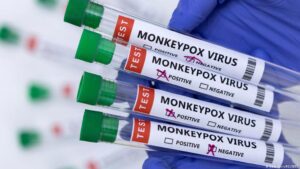
The total number of confirmed cases of monkeypox in more than 60 countries has exceeded 10 thousand cases, European media reported on Thursday, citing WHO.
It is noted that the largest number of cases of this disease occurs in Europe.
The WHO emergency committee is expected to meet next Thursday, July 21, to discuss measures to combat the spread of monkeypox.
In addition, the committee at the meeting is expected to decide on the classification of the outbreak, in particular whether the spread of monkeypox is a public health emergency.
The head of WHO, Tedros Adhanom Ghebreyesus, has repeatedly expressed concern about the situation with the spread of monkeypox, called for “work to stop the transmission of the disease,” and recommended that governments of different countries carry out contact tracing of the sick.
Monkeypox is a rare infectious disease most prevalent in remote areas of Central and West Africa. Its symptoms are nausea, fever, rash, itching, and muscle pain. Earlier, the Club of Experts analyzed the situation, the experts gave their comments and forecasts regarding this disease. For more details, see the video material on YouTube channel Club of Experts:
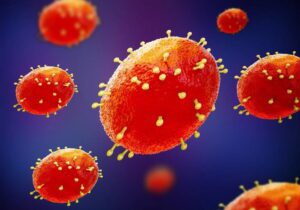
The WHO considers urgent coordinated action necessary in connection with a sharp increase in the number of cases of human infection with monkeypox in Europe, reports the Associated Press.
“Urgent and coordinated action is needed if we are to get out of this situation safely,” said Hans Kluge, WHO Regional Director for Europe.
He noted that monkeypox cases in the European region had tripled in the past two weeks.
Kluge added that 99% of the detected cases are men who have sex with other men. However, he said there are “small numbers” of cases among other people.
Monkeypox is a rare infectious disease most prevalent in remote areas of Central and West Africa. Its symptoms are nausea, fever, rash, itching, and muscle pain.
Earlier, Ukrainian experts analyzed this disease and considered the risks of a pandemic to be extremely low. For more details, watch the program about this on the YouTube channel Club of Experts
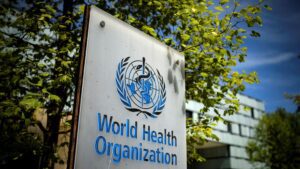
The war gave an additional impetus to the implementation of the healthcare system reform in the process of post-war reconstruction of Ukraine, Joseph Kutzin, the Coordinator for Health Financing Policy at the World Health Organization (WHO), the author of recommendations on resuming the healthcare system in Ukraine, says.
“The direction of reforms begun in 2016 is consistent with international good practice. The war does not change this; indeed, it should provide further impetus to carry the reforms to full implementation. We strongly believe in the need to continue and deepen health reforms in Ukraine,” he said in an interview with Interfax-Ukraine.
“Ukraine’s health financing reforms to date support the Universal Health Coverage (UHC) goals but can be taken further. Its strength is that the main funding source for the system is general tax revenues, and that all Ukrainians are entitled to services under the Program of Medical Guarantees (PMGs). The pooling of funds for the PMGs at national level in the NHSU enables the system to direct resources to where the needs are. Even before the invasion of February 24, getting better results from available public spending (efficiency) was crucial,” he said.